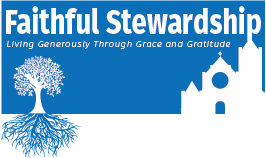It’s Advent. Advent is hard to observe in our culture, isn’t it?
The Church tells us Advent is a period of preparation for the Feast of the Incarnation, Christmas. Our faith tradition encourages us to make it a reflective time during which we identify with those who waited long centuries for the appearing of God’s anointed one. The liturgy for the Sundays and weekdays in Advent directs our attention to the wonderful gift that has come to us in Emmanuel and the promise that he will come again at the end to establish his victorious reign over all things.
Yet, here we are again with all those sights and sounds and smells that tell us it is time to be the world’s most accomplished consumers. Our culture encourages us to believe that the things we need and the things our loved ones need to make their lives complete can be bought for a price, and quite possibly must be acquired if life is to be worth living. The liturgy of advertising and shopping malls directs our attention to the near frenzy involved in getting there while supplies last.
I’m not really suggesting that we should not buy gifts or support our local merchants and workforce who work so hard and rely so heavily on sales at this season. I enjoy going to the mall and listening to the music in the stores. I like to shop for presents and believe it is a good thing to be thoughtful and generous with others as God in Christ has been thoughtful and generous with us in offering us his very life.
What I am suggesting is that the spiritual dimension of the season can easily be overshadowed. We need to find a balance and the Church can help. Go to the mall, after you’ve gone to church. Buy gifts, after you’ve left your gift at the Altar. Spend time shopping for the perfect gift, after you’ve spent time in communion with the most perfect gift, Christ the Savior. And then, after have a wonderful, peaceful, and blessed Christmas!
How silently, how silently, the wondrous gift is given!
So God imparts to human hearts the blessings of his heaven.
No ear may hear his coming, but in this world of sin,
Where meek souls will receive him, still the dear Christ enters in.
"O Little Town of Bethlehem"
The Rt. Rev. Philips Brooks (1835-1839)
I'll see you in Church!
The Very Reverend Ronald D. Pogue
Interim Dean
St. Andrew’s Cathedral
Jackson, Mississippi
P.S. Maybe some of your family and friends would appreciate an alternative Christmas gift, a contribution in their honor to a worthy cause. Alternative Christmas Cards are available at St. Andrew's before and after services and at the Welcome Desk during the week.
